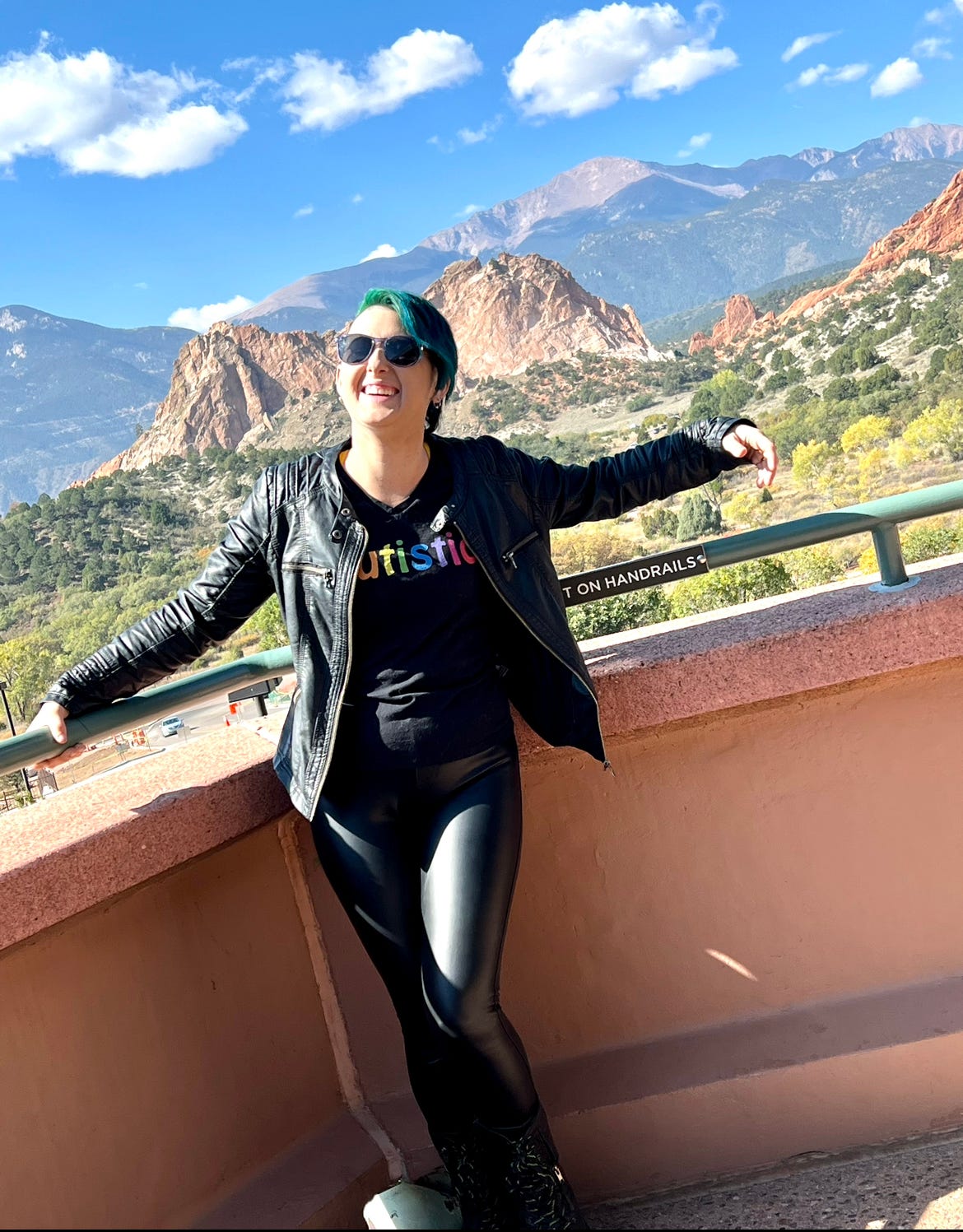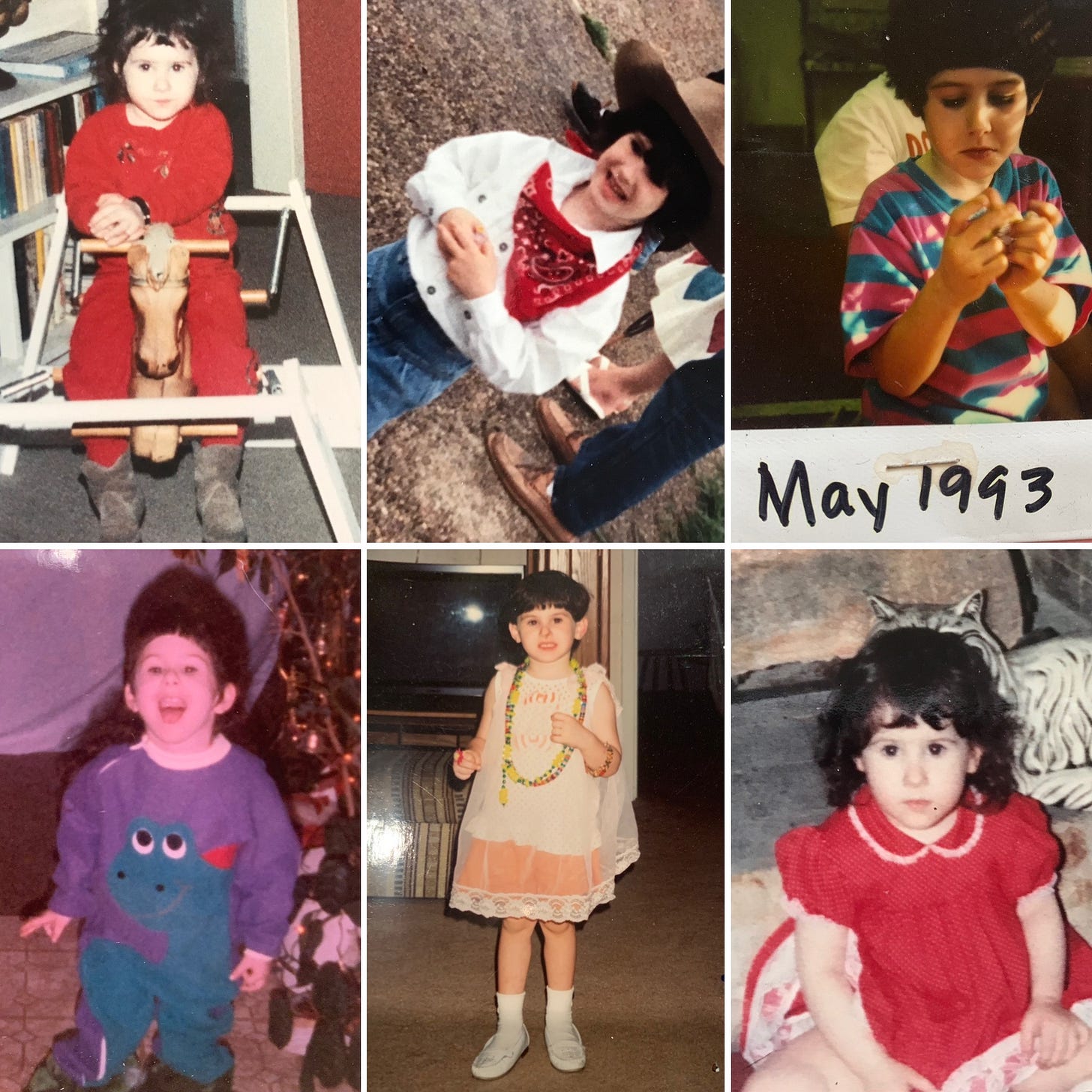Autism Doesn't End at 18 - What Happens when Autistic Adults Age?
Despite what is represented in media, Autistic People don’t vanish at the age of 18, and we don’t become “less Autistic” as we age either.
Today is my birthday. I am 36 years old and, despite being Autistic all my life, this is only the 7th birthday I’ve known this truth.
Autism is a lifelong difference, one of many NeuroTypes (or brain types) on the NeuroDivergent spectrum.
Though I didn’t know it, I was Autistic the first twenty-nine years of my life (even before being made aware of this fact). My life experiences are, and always have been, filtered through a NeuroDivergent lens.
Autistic and NeuroDivegent functioning fluctuates from day to day and throughout a person’s lifetime.
Like ALL PEOPLE, NeuroDivergent People can need more (or less) support from the outside world at different times in our lives.
Our ability to function (when compared to our NeuroTypical peers) can very depending on a number of factors, including the current amount of support we have in our lives, our current stress load, and the state of our mental health or any additional health conditions we may have.
Though my presentation and the ways in which I cope and interact with the world are sure to continue to change and evolve over years (regardless of how many coping skills I acquire, or how well I blend in, I will always be Autistic - and my ADHD isn’t going anywhere either).
I didn’t know I was NeuroDivergent for the first part of my life because NeuroDiversity is most often an invisible diversity, that can be easily overlooked by the untrained eye.
NeuroDivergent People’s brain differences are cognitive, which means our differences are frequently invisible, and impact the way we interpret the world, process information, and interact with others.
As we grow and age these differences will change and evolve.
I am not the same Autistic Person I was as a child, because, as an adult, I’ve gained many skills and abilities I didn’t have as a child.
Likewise, as I age I worry over the skills I see myself losing (at this point the decline seems to be more physical than mental, but it’s impossible to know if that will always be the case).
Born to a young mother, I was lucky enough to meet and know five generations of grand, great grand, and even great great grandparents on my mother’s side (many of whom have since passed). It meant having the privilege of meeting ancestors who would be gone by the time the my cousins and sibling would be born.
I know their smiles and I know their love.. I also know of their deaths and declines.
My childhood was full of hospital beds, home hospice workers, and demise, so it may not come as a surprise that I became obsessed with loss, sickness, and death (my own) at a young age.
Most of the time its difficult for me to sequence events, but it’s easy for me to organize the deaths of the five great grandparents I lost in childhood.
Watching them deteriorate one by one, I felt scared and helpless, hoping that I would never “become old” as they had; fantasizing frequently (with vivid detail) about all the quick, easy, ways one could die young (praying something quick and painless would take me one day).
Something worth noting is that “old” in my young mind, was likely younger than I am today (because 36 can seem quite old to a preschooler).
Another point worth nothing is NOW I’m quite happy to be alive (however ending up in a hospital bed is still one of my biggest fears).
Though I spent an unfortunate percentage of my young life hyper-fixated on my own death (a very unpleasant and tormenting area of hyper-focus), I’m glad (now) that I’ve made it to this birthday today, where I get to share with you this story many years later.
No longer worried about “the way out”, I’m starting to wonder (and plan for) what aging as an Autistic Person is going to look like. I have a lot of questions. Since media and research tend to focus on Autistic children, Autistic Adults get less and less attention the older we get.
Despite what is represented in media, Autistic People don’t suddenly vanish at the age of 18, and we don’t become “less Autistic” as we age either.
Keep reading with a 7-day free trial
Subscribe to NeuroDivergent Rebel’s Substack to keep reading this post and get 7 days of free access to the full post archives.





